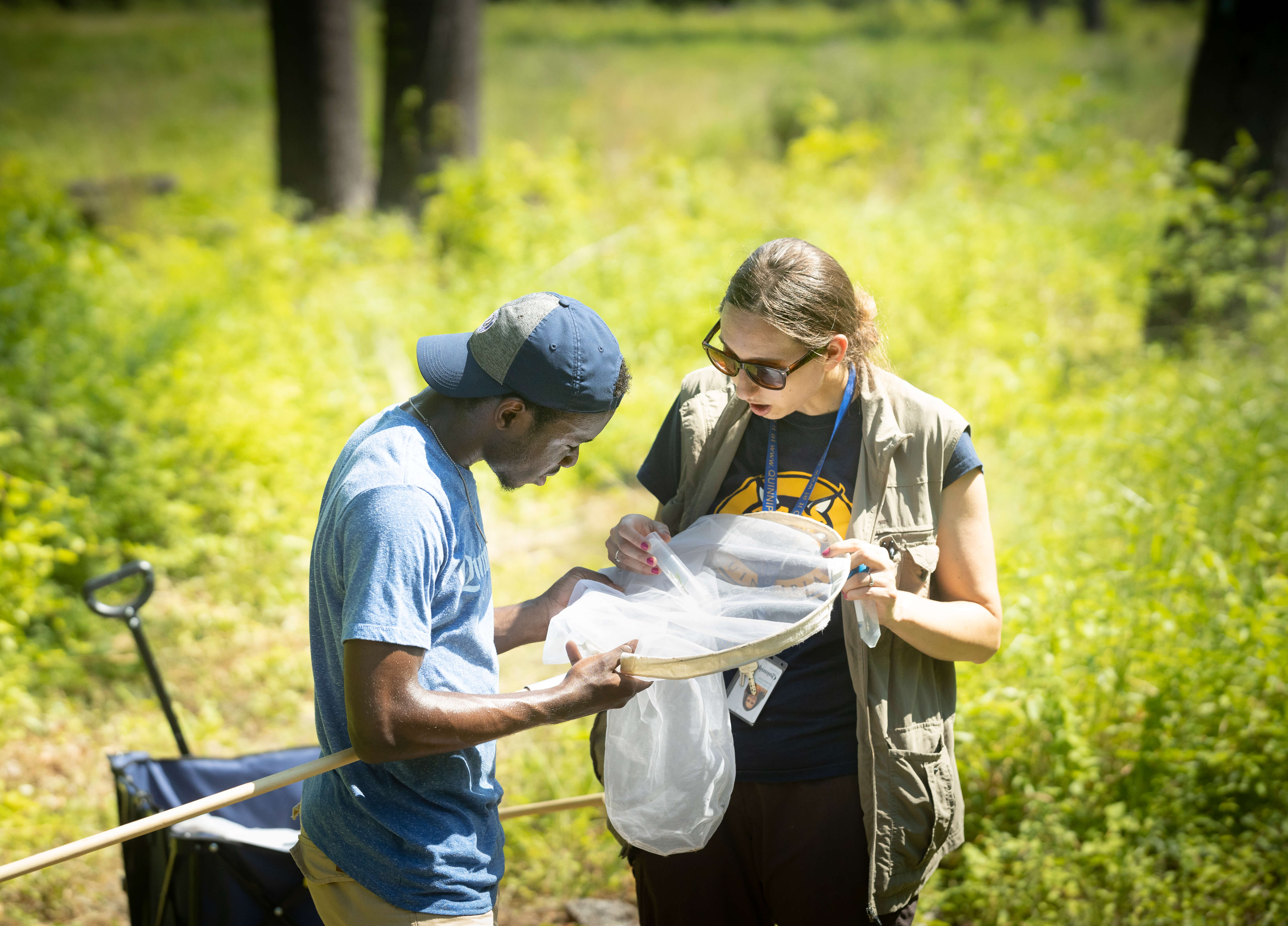
Professor and students save the bees one population at a time
July 16, 2021

July 16, 2021

Lawson first became interested in native bee biology while studying the social structure of the small carpenter bee eight years ago.
One of the main goals of this research is to help support Connecticut’s native pollinator community, which includes understanding the biodiversity and natural history of pollinators. Once they know more about the bees’ habitat preferences for both nesting and foraging, they can encourage the rehabilitation of Connecticut’s native ecosystems.
“We know a lot about the natural history and foraging preferences of honey bees, but honey bees are an introduced species from Europe,” she said. “In Connecticut alone, there are estimates of more than 300 species of native bees, yet the local diversity, foraging habits and nutritional needs of most native bees remain unknown.”
Lawson’s research was sparked by the desire to help create sustainable ecosystems for native bees, which then helps create a sustainable ecosystem as a whole.
“An estimated 90% of all flowering plants rely on insect pollinators,” she said. “Native pollinator diversity is crucial for a healthy and functioning ecosystem and the stability of agricultural production.”
Students are still working on analyzing their results but so far have found a few interesting trends.
“One group was examining the general plant preferences of our native bees,” she said. “They found that flowers with large, flat floral displays — like daisies — were highly attractive to a diverse set of pollinator species. We also found that many common flowers, like petunias and geraniums were not very attractive to our native bees.”
Lawson’s research supplies were funded by CAS scholarships and grants, and her research students were funded by QSTEP and QUIP-RS grants. All of the students involved in this lab design, perform, and research their own experiments.
This fall, the project will continue, analyzing the data, with the ultimate goal of the lab being to help support native bee populations.
Quinnipiac Today is your source for what's happening throughout #BobcatNation. Sign up for our weekly email newsletter to be among the first to know about news, events and members of our Bobcat family who are making a positive difference in our world.
Sign Up Now